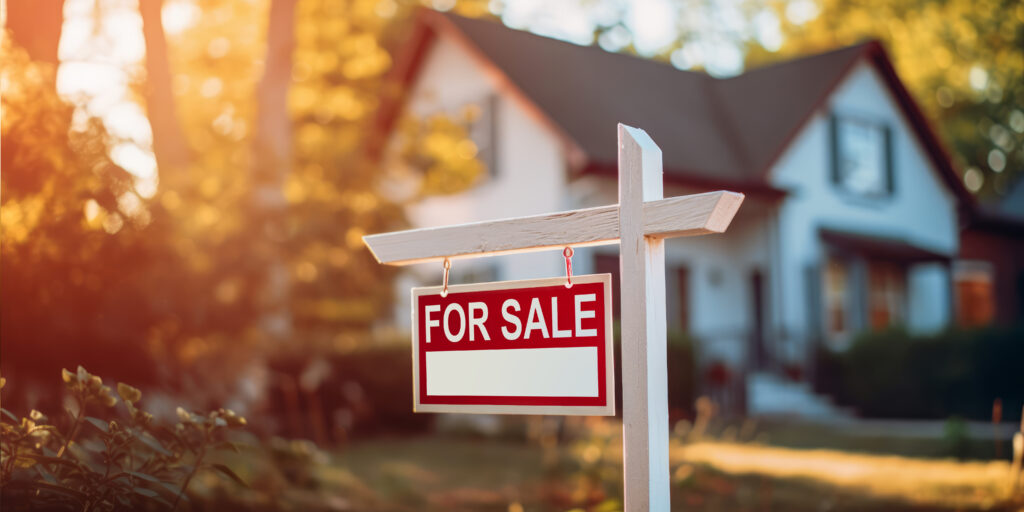Understanding the Real Estate Market
Entering the real estate market as a seller is akin to setting sail in a vast and often unpredictable ocean. It’s a realm where economic currents, market trends, and seasonal winds all play a pivotal role in charting the course of your home-selling journey. To navigate these waters successfully, an in-depth understanding of the real estate market is not just beneficial; it’s essential.
Current Market Trends
The real estate market is constantly evolving, influenced by national economic conditions, interest rates, and even global events. For instance, a booming economy often leads to more buyers entering the market, driving up property prices. Conversely, in times of economic downturn, the market may shift in favor of buyers, with more houses available than there are buyers, potentially leading to lower sale prices.
It’s vital to keep a finger on the pulse of these trends. Are houses in your area selling quickly? What are the average selling prices? Understanding these trends will help you gauge how your property might fare in the current market.
Economic Factors
Economic factors play a significant role in the real estate market. Interest rates, for example, directly impact mortgage rates. Lower interest rates can make mortgages more affordable, increasing the number of potential buyers in the market. On the other hand, high interest rates might reduce buyer demand, as borrowing costs rise.
Employment rates and consumer confidence are also critical. When people feel secure in their jobs and optimistic about the economy, they are more likely to invest in real estate. Therefore, keeping an eye on these economic indicators can provide valuable insights into the potential demand for your property.
Impact of Seasonality
Seasonality is another crucial aspect of the real estate market. Traditionally, spring is seen as the best time to sell a house. The weather is pleasant, gardens are in bloom, and families prefer to move during the summer to avoid disrupting the school year. However, this also means more competition as many sellers list their homes during this period.
Winter, conversely, often sees a slowdown in the market. However, buyers looking during the colder months tend to be more serious, and there’s less competition in listings. Understanding these seasonal trends can help you decide the most opportune time to list your property for sale.
Preparing Your House for Sale
Preparing your house for sale is a critical step in the selling process. It’s not just about making your home look attractive; it’s about creating an environment where potential buyers can envision their future. Here are some key areas to focus on:
First Impressions and Curb Appeal
First impressions are lasting. The curb appeal of your home sets the tone for the entire viewing experience. Enhance your home’s exterior to make it inviting and appealing:
- Ensure the lawn is mowed, and the garden is well-kept.
- Add a fresh coat of paint to the front door.
- Clean the windows and clear the walkway.
- Consider adding potted plants or flowers for a touch of color.
Staging, Decluttering, and Minor Repairs
This step involves several important tasks:
Staging: Arrange furniture and decor to highlight your home’s best features. Create a balance that makes the home look lived-in yet spacious and clean. Staging should aim to showcase the potential of your space, allowing buyers to envision themselves living there.
Decluttering: Remove personal items like family photos and keepsakes. These can distract buyers and make it harder for them to see the house as their future home. Decluttering also makes rooms appear larger and more welcoming.
Minor Repairs: Address small issues that could deter buyers:
- Fix leaky faucets and squeaky doors.
- Patch holes or marks on walls.
- Replace any burnt-out light bulbs.
- Ensure all appliances are functioning properly.
These small fixes can make a significant difference in the overall appeal of your home.
Benefits of Professional Photography
In the digital era, where most home searches begin online, high-quality photographs are crucial. Professional photographers can capture your home in the best light, emphasizing space and appeal. They use techniques to make rooms appear more spacious and inviting, helping your listing stand out in the crowded online marketplace.

Setting the Right Price
One of the most critical decisions in selling your home is setting the right price. It’s a delicate balance between making sure the price is attractive enough to draw in potential buyers and ensuring that it reflects the true value of your property. Setting the right price can accelerate the sale of your house and maximize your financial return.
Strategies for Pricing Your Home Effectively
To price your home effectively, it’s important to consider several factors:
Understand the Local Market: Research the selling prices of similar homes in your area. This gives you a benchmark and helps you understand what buyers might be willing to pay.
Consider Market Conditions: Is it a buyer’s or a seller’s market? In a seller’s market, where demand exceeds supply, you might price your home higher. Conversely, in a buyer’s market, you may need to be more competitive with your pricing.
Reflect on Your Home’s Unique Features: Does your home have any unique features or upgrades that could increase its value? Features like a renovated kitchen, a well-maintained garden, or energy-efficient appliances can justify a higher price.
Be Realistic: It’s natural to be emotionally attached to your home, but it’s crucial to set a realistic price based on market conditions and not on personal sentiment.
Comparative Market Analysis
A comparative market analysis (CMA) is an essential tool in setting the right price.
Comparative Market Analysis: A CMA is typically provided by a real estate agent. It involves comparing your home to similar properties that have recently sold in your area. This comparison helps in understanding the current market demand and in pricing your home competitively.

Effective Marketing Strategies
The way you market your home can make a significant difference in attracting the right buyers and securing a successful sale. Effective marketing is about showcasing your property’s best features, reaching a wide audience, and creating a compelling narrative that resonates with potential buyers. Here’s how to develop a robust marketing strategy for your home.
Creating Compelling Listings
A compelling listing is your first opportunity to make an impression on potential buyers. Here’s how to create a listing that stands out:
Write a Captivating Description: Craft a narrative that goes beyond just listing the features of your home. Highlight what makes your property unique, like a beautiful garden, a cozy reading nook, or a recently renovated kitchen. Use descriptive language to paint a picture that allows potential buyers to envision living in the space.
Include High-Quality Photos: Photos are a crucial element of your listing. Use high-resolution images that are well-lit and showcase your home’s best features. Include a variety of shots – from wide angles of entire rooms to close-ups of unique details.
Provide Essential Information: Ensure your listing includes all the necessary information like the number of bedrooms and bathrooms, square footage, location, and asking price. Don’t forget to mention any recent upgrades or desirable features like a home office or energy-efficient appliances.
Utilizing Digital Marketing and Social Media
Leveraging digital marketing and social media can exponentially increase your home’s visibility:
Use Social Media Platforms: Platforms like Facebook, Instagram, and Twitter can be powerful tools. Share your listing on your profiles, local real estate groups, and community pages. Engaging content, such as virtual tours or stories about your home, can help in reaching a broader audience.
Email Marketing: If you have a network of contacts, an email blast with your listing details can be effective. Include a link to the online listing and encourage your contacts to share it with others.
Online Real Estate Portals: Listing your home on popular real estate websites can increase its exposure. These platforms have large audiences actively looking for properties, which can significantly increase your chances of finding the right buyer.
Choosing the Right Platforms for Listing
Selecting the right platforms to list your home is critical:
Understand Your Target Audience: Consider where your potential buyers are most likely to search for properties. For example, younger buyers might be more active on social media, while older demographics might prefer traditional real estate websites.
Multiple Listing Service (MLS): Listing your property on the MLS ensures it is seen by a wide range of real estate professionals and potential buyers.
Local Real Estate Websites: Don’t overlook local websites and forums. They can be particularly effective if you’re targeting buyers within your community.

Leveraging Technology in House Selling
The use of technology in selling a house has become increasingly important in today’s digital world. Virtual tours and online listings play a significant role in reaching a broader audience.
Virtual Tours: Virtual tours allow potential buyers to explore your home online, which is especially useful in reaching out-of-town buyers or those who prefer initial online browsing.
Online Listings: A well-crafted online listing can reach a vast audience. Ensure your listing is on popular real estate websites and social media platforms.
The advancements in real estate technology have introduced various digital tools that can enhance your home’s appeal. These include 3D modeling, drone photography for aerial views, and digital staging. Additionally, the growing trend towards online transactions has made the process more convenient, with digital contracts and electronic fund transfers speeding up the transaction process.
Legal and Financial Considerations
When selling your house, it’s crucial to navigate the legal and financial aspects carefully. This section highlights the primary components you’ll need to consider.
Legal Processes
Disclosures: As a seller, you’re required to disclose certain information about your property, such as known defects or repair history. This ensures transparency and reduces the risk of future legal disputes.
Inspections: Buyers may request various inspections (like structural or pest inspections) to assess the condition of your home. Preparing for these inspections can help in addressing potential concerns early on.
Contracts: The sale involves legal contracts that define the terms of the transaction, including the sale price, closing date, and contingencies. These contracts are legally binding and require careful review to ensure they reflect your agreement accurately.
Financial Aspects
Capital Gains Tax: If your home has increased in value, you may face capital gains tax on the profit. It’s important to understand the specific tax implications and any available exemptions or deductions.
Closing Costs: These costs, which can include agent commissions, legal fees, and other transactional expenses, are an essential part of the sale’s financial planning. Being aware of these costs upfront can help you budget effectively.
Mortgage Considerations: Managing the payoff of your existing mortgage is a critical aspect of the financial process. It involves coordinating with your lender to ensure the mortgage is fully paid off from the sale proceeds.

Negotiating and Closing the Sale
Negotiating the terms and closing the sale are pivotal moments in your home-selling journey. Effective negotiation requires a solid understanding of your property’s market value and a readiness to engage with potential buyers’ offers. It’s important to balance flexibility with patience, and not to rush into accepting an offer that falls short of your expectations.
Negotiation Tactics
Understanding Market Value: Be well-informed about your property’s value and how it fits into the current market. This knowledge will help you negotiate confidently and effectively.
Flexibility and Patience: Sometimes, being open to negotiation and willing to listen to buyers’ offers can lead to a better deal. However, patience is key; don’t rush into accepting an offer that doesn’t meet your expectations.
Understanding Buyer Psychology
Understanding the psychology of buyers is a nuanced aspect of the negotiation process. It’s about recognizing that the decision to purchase a home often transcends the mere functionality of the property. Buyers are influenced by how a home makes them feel, envisioning their future lives unfolding within its walls. This emotional connection can sometimes outweigh practical considerations such as size or layout.
To effectively tap into this emotional aspect, sellers should focus on highlighting the unique qualities that make their homes feel inviting and special. It could be the warmth of a sunlit living room, the cozy ambiance of a fireplace, or the serene view from the balcony. These elements can create a powerful emotional pull for potential buyers.
Additionally, implementing strategies that create a sense of urgency can be effective. For example, setting a deadline for offers can prompt buyers to make quicker decisions, often leading to more competitive offers. This approach plays on the buyer’s fear of missing out on what they perceive as their ideal home, thereby accelerating the negotiation process.
The Closing Process
The closing process is a critical stage in the sale of a house, marking the finalization of the transaction. This phase involves a series of steps where all parties come together to sign the necessary legal documents and officially transfer ownership of the property. Being well-prepared for this stage is crucial for a smooth and successful conclusion to the sale.
An important aspect of the closing process is understanding and preparing for the associated costs. These can include real estate agent commissions, attorney fees, transfer taxes, and other miscellaneous expenses that are typically settled at this time. Sellers need to have a clear understanding of these costs beforehand to avoid any surprises.
Another key component of the closing process involves addressing any contingencies or conditions agreed upon during the negotiation phase. This could include making repairs, allowing for final inspections, or fulfilling other specific requests made by the buyer. Ensuring that all these conditions are met is vital for the seamless completion of the sale.
Furthermore, the closing process is where all financial transactions are finalized. If there’s an existing mortgage on the property, arrangements are made to pay off the remaining balance using the sale proceeds. After all the paperwork is signed and the financial transactions are completed, the keys are handed over to the buyer, officially marking the end of the selling journey.
Choosing a Real Estate Agent
Choosing the right real estate agent is a critical decision in the home-selling process. A good agent is not just a mediator for transactions but a partner in your selling journey. Start by researching agents who have a strong track record in your area and interviewing multiple candidates to find someone whose approach aligns with your goals.
When meeting with potential agents, ask about their experience, particularly with homes similar to yours, and discuss their proposed marketing strategy. It’s also important to understand how they plan to communicate with you throughout the process.
The role of an agent goes beyond just listing your home. They provide valuable insights into the local market, advice on pricing and marketing, handle negotiations with buyers, and ensure that all legal and paperwork requirements are met efficiently and correctly.

A successful sale is the result of strategic planning, deep market understanding, and effective execution. Navigating the complexities of the real estate market can be challenging, but with the right approach, it can also be advantageous. Remember, your journey in selling your home is unique, and approaching it with a well-informed strategy can make all the difference.
If you’re looking for more personalized advice or have specific questions, don’t hesitate to reach out to professional realtors. At The Real Estate Co., we’re here to guide you every step of the way. We can provide tailored guidance and insights specific to your situation, helping you navigate the complexities of the real estate market with confidence.
Contact us today to discuss your home-selling goals and get started on your journey to a successful sale.
We look forward to partnering with you for a seamless and fulfilling home-selling experience!





